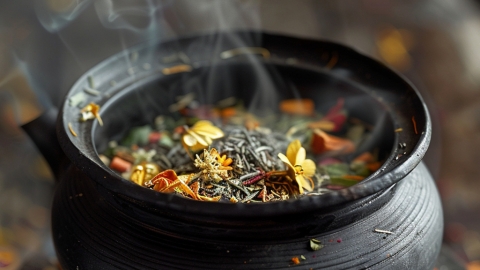Can Fructus Corni be added to Xiao Qing Long Tang?
Xiao Qing Long Tang can usually be combined with Cornus officinalis, but it is important to use the medication as directed by a physician. If any discomfort or adverse symptoms occur, it is recommended to seek medical attention at a hospital as soon as possible, and then follow the doctor's instructions for appropriate management.

Xiao Qing Long Tang is primarily used to treat conditions characterized by external contraction of cold-wind and internal accumulation of phlegm-dampness, such as cough, asthma, and excessive phlegm. Cornus officinalis has functions of nourishing the liver and kidneys and consolidating essence and urine, and is suitable for symptoms like soreness and weakness of the waist and knees, and seminal emission caused by deficiency of the liver and kidneys. When a patient simultaneously presents with symptoms of external contraction of cold-wind and internal phlegm-dampness along with manifestations of liver and kidney deficiency, Cornus officinalis may be appropriately added under a doctor's guidance to enhance the effect of nourishing the liver and kidneys, achieving both symptomatic and root cause treatment.
It should be noted that Cornus officinalis has a relatively warm nature and should not be used or should be used cautiously in patients with excessive internal damp-heat or symptoms such as dysuria or incomplete urination, to avoid exacerbating the condition. Each patient's constitution and condition are different, so when using Xiao Qing Long Tang with Cornus officinalis, adjustments must be made according to the individual patient's specific circumstances to achieve optimal therapeutic results.
Physicians will comprehensively evaluate whether it is suitable to add Cornus officinalis and determine the exact dosage based on factors such as the patient's constitution, condition, and potential drug interactions. Therefore, when using Xiao Qing Long Tang, it is essential to strictly follow medical advice and never adjust the medication on one's own.




